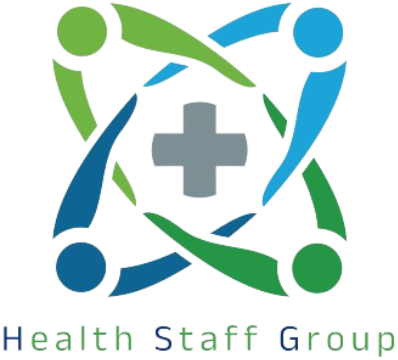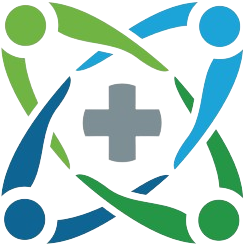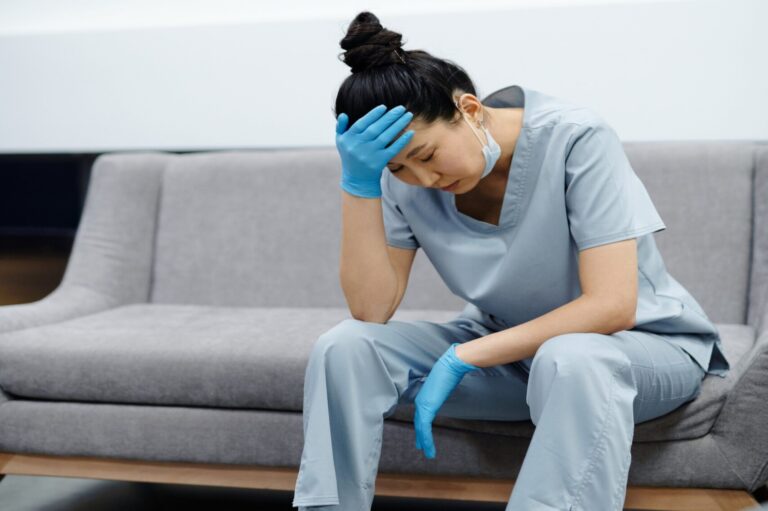The Profound Impact of Allied Health Professionals in Shaping Modern Healthcare Delivery
In the intricate tapestry of modern healthcare services, where advancements in medical science and technology continuously redefine the landscape, there exists a silent force that plays an indispensable role – Allied Health Professionals. This diverse group of skilled individuals, often operating behind the scenes, brings a unique set of talents and expertise that contributes significantly to the holistic delivery of healthcare services. In this exploration, we delve into the multifaceted world of Allied Health Professionals, uncovering their vital contributions, the collaborative nature of their work, and the crucial role they play in shaping the future of healthcare.
Understanding the Allied Health Profession: A Diverse Tapestry
Allied Health Professionals represent a vast and diverse array of healthcare roles that fall outside the realm of physicians and nurses. From radiologic technologists, respiratory therapists, and clinical laboratory scientists to physical therapists, dietitians, and occupational therapists, each professional brings a specialized skill set essential for comprehensive patient care.
The Collaborative Thread: Interdisciplinary Teamwork in Healthcare
The essence of modern healthcare lies in interdisciplinary collaboration, and Allied Health Professionals epitomize this collaborative spirit. Unlike the traditional hierarchical model where physicians took the center stage, the contemporary approach values the contributions of various healthcare professionals working together as a team. The collaborative nature of Allied Health Professionals ensures that patient care is not compartmentalized but rather a seamless continuum where each professional’s expertise complements the other.
Precision in Diagnostics and Therapeutics: The Allied Health Impact
One of the primary contributions of Allied Health Professionals lies in the realms of diagnostics and therapeutics. Radiologic technologists, for instance, employ advanced imaging technologies to capture detailed images, aiding in accurate diagnoses. Respiratory therapists specialize in managing respiratory conditions, playing a crucial role in therapeutic interventions. Their proficiency in utilizing cutting-edge technologies ensures that healthcare interventions are not only timely but also precise, ultimately improving patient outcomes.
Personalized Patient-Centered Care: The Hallmark of Allied Health
In the realm of healthcare, where patients are not just cases but individuals with unique needs, Allied Health Professionals shine in delivering personalized, patient-centered care. Physical therapists tailor rehabilitation plans to the specific needs of each patient, ensuring a customized approach to recovery. Dietitians provide personalized nutritional guidance, recognizing the importance of individualized dietary plans. Clinical laboratory scientists meticulously process and analyze patient samples, contributing to accurate and tailored treatment strategies.
Adapting to Technological Advancements: The Tech-Savvy Allied Health Professional
In an era characterized by rapid technological advancements, the adaptability of healthcare professionals becomes paramount. Allied Health Professionals are at the forefront of embracing innovation. Whether it’s telehealth consultations, artificial intelligence applications in diagnostics, or the use of state-of-the-art equipment in their respective fields, these professionals leverage technology to enhance the efficiency and effectiveness of healthcare delivery.
The Future of Healthcare: Nurturing Allied Health Talent
As we navigate the complexities of modern healthcare, the importance of nurturing and investing in the talent of Allied Health Professionals becomes evident. Education, training, and creating opportunities for professional growth are essential components in ensuring a robust healthcare workforce. Recognizing and appreciating their contributions will undoubtedly inspire the next generation to pursue careers that positively impact healthcare delivery.
Exploring the Roles of Allied Health Professionals
Radiologic Technologists: Capturing Images for Accurate Diagnoses
Radiologic technologists are integral to the diagnostic process, utilizing various imaging technologies such as X-rays, CT scans, and MRIs to capture detailed images of internal structures. These images are instrumental in assisting physicians in making accurate diagnoses and formulating appropriate treatment plans.
Respiratory Therapists: Managing Respiratory Conditions with Expertise
Respiratory therapists specialize in assessing and treating patients with breathing disorders. Their expertise extends to administering breathing treatments, managing ventilators, and providing education on respiratory care. In critical situations, such as in intensive care units, their timely interventions can be life-saving.
Clinical Laboratory Scientists: Unveiling the Mysteries in Patient Samples
Behind the scenes, clinical laboratory scientists work meticulously to process and analyze patient samples. From blood tests to microbiological cultures, their work provides valuable insights into a patient’s health status, guiding physicians in making informed decisions regarding treatment.
Physical Therapists: Tailoring Rehabilitation Plans for Individual Needs
Physical therapists play a vital role in helping individuals recover from injuries or surgeries. By assessing physical capabilities, they design personalized rehabilitation plans that focus on improving mobility, strength, and overall functionality. Their hands-on approach ensures that each patient’s unique needs are addressed.
Dietitians: Crafting Nutritional Guidance for Optimal Health
Dietitians specialize in providing expert nutritional guidance, recognizing the profound impact of diet on overall health. Whether it’s managing chronic conditions or promoting general well-being, dietitians work closely with patients to develop dietary plans that align with their health goals.
Occupational Therapists: Empowering Independence in Daily Activities
Occupational therapists focus on helping individuals regain independence in their daily activities. Whether it’s after an injury or due to a chronic condition, occupational therapists collaborate with patients to develop strategies that enhance their ability to perform essential tasks, promoting a better quality of life.
Challenges Faced by Allied Health Professionals
While Allied Health Professionals contribute significantly to healthcare, they also face various challenges. Limited recognition, sometimes leading to undervaluation of their contributions, and a need for ongoing professional development to keep pace with evolving technologies are among the hurdles. Addressing these challenges is crucial to maintaining a motivated and skilled workforce.
The Economic Impact of Allied Health Professions
Beyond their contributions to patient care, Allied Health Professionals also play a substantial role in the economic landscape. Their diverse roles contribute to job creation, with opportunities spanning hospitals, clinics, research institutions, and educational settings. The economic impact of a robust Allied Health workforce extends to the broader community.
Educational Requirements and Professional Development
To meet the demands of the ever-evolving healthcare landscape, Allied Health Professionals often pursue specialized education and training. From obtaining certifications to pursuing advanced degrees, continuous learning is crucial to staying abreast of new technologies and emerging trends. Creating pathways for ongoing professional development is key to ensuring a skilled and competent workforce.
COVID-19 and the Role of Allied Health Professionals
The global pandemic brought unprecedented challenges to the healthcare sector, and Allied Health Professionals played a critical role in the response. From conducting diagnostic tests to providing rehabilitative care for post-COVID-19 patients, their adaptability and resilience were evident in navigating the complexities of the pandemic.
Building a Future-Ready Healthcare Workforce
As we look to the future, building a healthcare workforce that is ready to meet the challenges of tomorrow is paramount. This involves not only addressing the current needs of Allied Health Professionals but also anticipating future demands. Nurturing talent, fostering innovation, and promoting a culture of collaboration will be instrumental in creating a future-ready healthcare ecosystem.
In the grand symphony of healthcare, where each note contributes to the melody of healing, Allied Health Professionals stand as unsung heroes. Their roles, though diverse, converge to create a harmonious and patient-centered approach to care. As we celebrate the contributions of physicians and nurses, let us also acknowledge and appreciate the invaluable roles played by Allied Health Professionals in shaping the present and future of healthcare delivery.
In essence, the story of modern healthcare is incomplete without the narrative of Allied Health Professionals. They are the quiet force that ensures precision, personalization, and progress in patient care. As we navigate the complexities of a rapidly advancing healthcare landscape, let us shine a spotlight on these heroes, recognizing the depth of their contributions and the transformative impact they have on the health and well-being of individuals and communities alike.








